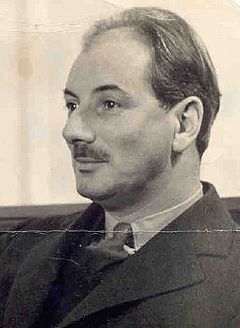Lewis Mumford, KBE was an American historian, sociologist, philosopher of technology, and literary critic. Particularly noted for his study of cities and urban architecture, he had a broad career as a writer.
In his book The Condition of Man, published in 1944, Mumford characterized his orientation toward the study of humanity as “organic humanism”. The term is an important one because it sets limits on human possibilities, limits that are aligned with the nature of the human body. Mumford never forgot the importance of air quality, of food availability, of the quality of water, or the comfort of spaces, because all these things had to be respected if people were to thrive. Technology and progress could never become a runaway train in his reasoning, so long as organic humanism was there to act as a brake. Indeed, Mumford considered the human brain from this perspective, characterizing it as hyperactive, a good thing in that it allowed humanity to conquer many of nature’s threats, but potentially a bad thing if it were not occupied in ways that stimulated it meaningfully. Mumford’s respect for human “nature”, that is to say, the natural characteristics of being human, provided him with a platform from which to assess technologies, and technics in general. Thus his criticism and counsel with respect to the city and with respect to the implementation of technology was fundamentally organized around the organic humanism to which he ascribed. It was from the perspective of organic humanism that Mumford eventually launched a critical assessment of Marshall McLuhan, who argued that the technology, not the natural environment, would ultimately shape the nature of humankind, a possibility that Mumford recognized, but only as a nightmare scenario.

